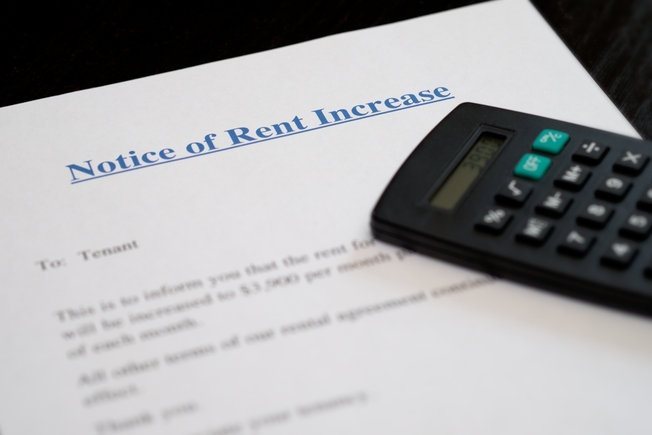
All the Ways You Can Pay Your Rent, Explained

By Lilly Milman
Apr 18, 2024
Every landlord will have a difference preference when it comes to collecting rent payments, so it can be helpful for you to know your options. For example, newer buildings, larger property management companies, or landlords that own a lot of real estate may have higher-tech processes for collecting rent, while smaller landlords may prefer traditional methods like cash or check. In this guide, we go through all the different ways a landlord may ask you to pay rent.
Every Way to Pay Rent
Cash: The most analog and least secure way to pay rent is in cash. Some landlords will opt to stop by a renter’s apartment to pick up rent in cash or ask that renters deposit it at an agreed-upon location, like their home if they live close by or their office. This is a less common way to pay rent because it can easily lead to miscommunication or loss of funds because there is no paper trail. For example, a tenant or landlord can accidentally miscount how much cash was transferred — leading to disagreement about whether rent was fully paid. There is also always the risk of cash being stolen before it is received and deposited by the landlord. For these reasons, a larger property management company or a landlord who owns multiple rental properties will probably not want to collect rent via cash.
Personal check: A smaller landlord may also ask you to pay rent via check, either by hand delivering it or mailing it to them. You can write personal checks at home using your checkbook or you can ask your bank to write the check for you and mail it to your landlord on your behalf. You can set this up online by using your bank’s “Bill Pay” or “Autopay” feature, which will make it easier to deliver a check by the due date every month. Keep in mind: The funds won’t be withdrawn from your account until your landlord cashes the check. So, if you are paying your landlord by personal check, make sure you will have adequate funds in your account for rent until the check is cashed. If you don’t, your check will either bounce when your landlord tries to cash it or you will overdraft your bank account and may be charged an extra fee. Because personal checks don’t provide a guarantee that the funds exist and can take a few business days to clear, many landlords stay away from collecting paper checks as a form of payment for rent.
Certified check: A cashier’s check differs from a personal check because it requires a bank to guarantee that the funds are available when it’s written. When writing a certified check, a bank also verifies that the check is real and accurate, has a legitimate signature, and is tied to an active bank account. There may be a fee associated with requesting a certified check from your bank. You will need to show an ID to receive a certified check.
Cashier’s check: While it’s often confused with a certified check, a cashier’s check or banker’s check is slightly different. When a bank writes you a cashier’s check, they are guaranteeing that the funds exist because they are coming from the bank’s own funds. The bank then puts an equal amount of funds from your account into escrow until the payment clears. Similar to a certified check, a cashier’s check requires an ID and may incur a fee. Often, a landlord will require that first and last month’s rent, as well as security deposits, are delivered via a cashier’s check.
Money Order: A money order is another way to guarantee funds exist before they are transferred. To send a money order, you first need to find an issuer, like a bank, credit union, U.S. post office, supermarket, or convenience store. Companies like Western Union and MoneyGram issue money orders as well, so look for those logos in a store window. Once you have the money order, you fill out your landlord’s name and address, your name and address, a note that explains the order is for a rent payment, add a signature, and keep the receipt until your landlord confirms that they’ve received and deposited the funds. Money orders do not require bank accounts and are a more secure payment method than cash, so some tenants may prefer them. However, they also come with fees and have a maximum transaction limit of $1,000 — so if your rent amount is higher than that, you’d need to send multiple money orders.
ACH transfer: An ACH (Automatic Clearing Housing) transfer is a form of direct deposit, like a digital version of a personal check. It allows you to transfer money from one bank account to another within the US, with funds available to the recipient in as little as one day. Setting up an ACH payment may require some paperwork upfront and may require paying small fees. If you set up a recurring ACH payment, then the rent collection process can be automated. To set up an ACH transfer, you will need your landlord’s bank account number and routing number. The benefits are that they are very secure, take less time than sending checks, and offer a convenience factor to both tenant and landlord.
Wire transfer: Similar to an ACH transfer, a wire transfer allows you to transfer money from one bank account to another — but is not limited to US financial institutions like an ACH transfer. Another benefit to wire transfers is that they are even faster than ACH transfers — with funds sometimes available within minutes. However, they are typically not the most convenient method for rental payments because they are one-time transfers and incur a processing fee for both the sender and recipient.
Zelle, Venmo, Cash App, or PayPal: One easy and modern method for paying rent is through a digital payments app. Popular online payment services are Venmo, Cash App, and PayPal — as well as Zelle, which many banks have directly integrated into their platforms. With these apps, you sign up with your bank account and then are able to send and receive funds directly from your account. Essentially, this is the digital version of sending cash. One benefit is that it creates a paper trail because the apps store a transaction history.
Third-party online rent payment platform: If you live in a building owned or operated by a large property management company, they’ll likely have their own digital payment system for collecting rent. There are many different online payment options: Avail, Buildium, TurboTenant, PayRent, Rentdrop, and ClearNow are just a few. These sites, designed specifically to help collect rent payments, may also offer services like automatic payments, payment reminders, and rent splitting for tenants living with roommates. These kinds of platforms will also typically give the tenant the option to pay their rent by credit card (though this may come with transaction fees) or debit card, or through their checking account.
Everything Else You Need to Know About Rent Payments
Now that you have a handle on all the different payment methods that are available for sending your landlord your rent, there are a few more facts you should be aware of:
- Some landlords prefer to receive only one rent payment a month, meaning that only one tenant will transfer the funds — even if there are multiple cohabitants living in one apartment. This will require you to work out rent splitting on your own, whether it’s by handing over cash to one roommate every month, sending Venmo or PayPal payments, or writing them checks. If one roommate neglects to hand over their rent payment, this may mean that you or your other roommates will have to make up their portion of the rent — leading to roommate conflict. Make sure to always keep a paper trail of all rent payments made by all roommates, even if only one payment is being sent to the landlord each month.
- Other landlords will be comfortable with each cohabitant sending their own portion of the rent payment each month.
- Your rent payments can help you improve your credit score if you report them to a credit bureau. If you are looking to build your credit, look into a rent-reporting service like Piñata or Self, which you can do without the help of your landlord, or ask your landlord to sign up for a platform like Azibo, Bilt Rewards, or ClearNow, among others.
- Missing rent payments can lead to eviction, which can also hurt your credit score. It’s advised that you avoid renting an apartment that you cannot comfortably pay on time with your income. If you start missing your rent payments, your landlord will have the right to evict you — leaving you without an apartment and less eligible to rent future apartments — or charge you late fees. If you are experiencing a financial hardship that may impact your ability to pay rent, try talking to your landlord and creating a payment plan that works for both parties.
- You may need to pay for fees beyond your monthly rent. For example, if you are renting a parking spot from your landlord or have a pet in a property that charges pet rent, then you will need to factor those extra apartment fees in with your monthly rent.
The Bottom Line
Every landlord will have a different preference when it comes to collecting rent, but some methods are certainly more secure than others. If your landlord is asking for you to pay rent in a method that is less convenient for you — say, delivering cash — consider bringing up the idea of an easier and more secure payment method. They may be open to accepting an online rent payment option like Venmo or Zelle or a rent check mailed by your bank, for example.
Top cities
Atlanta Apartments
1,558 apartments starting at $650/month
Austin Apartments
6,541 apartments starting at $550/month
Baltimore Apartments
1,486 apartments starting at $650/month
Boston Apartments
5,902 apartments starting at $425/month
Charlotte Apartments
2,725 apartments starting at $560/month
Chicago Apartments
6,513 apartments starting at $400/month
Dallas Apartments
4,864 apartments starting at $525/month
Fort Worth Apartments
2,186 apartments starting at $500/month
Houston Apartments
5,937 apartments starting at $450/month
Las Vegas Apartments
1,015 apartments starting at $595/month
Los Angeles Apartments
11,938 apartments starting at $690/month
Miami Apartments
890 apartments starting at $975/month
Milwaukee Apartments
1,118 apartments starting at $500/month
New York Apartments
9,736 apartments starting at $575/month
Oakland Apartments
911 apartments starting at $850/month
Orlando Apartments
869 apartments starting at $750/month
Philadelphia Apartments
3,133 apartments starting at $500/month
Phoenix Apartments
3,468 apartments starting at $697/month
Pittsburgh Apartments
1,259 apartments starting at $475/month
Portland Apartments
2,133 apartments starting at $649/month
Raleigh Apartments
1,301 apartments starting at $550/month
San Antonio Apartments
3,359 apartments starting at $500/month
San Diego Apartments
2,681 apartments starting at $650/month
San Francisco Apartments
576 apartments starting at $500/month
San Jose Apartments
410 apartments starting at $880/month
Seattle Apartments
3,141 apartments starting at $452/month
Tampa Apartments
743 apartments starting at $850/month
Washington DC Apartments
2,259 apartments starting at $910/month


